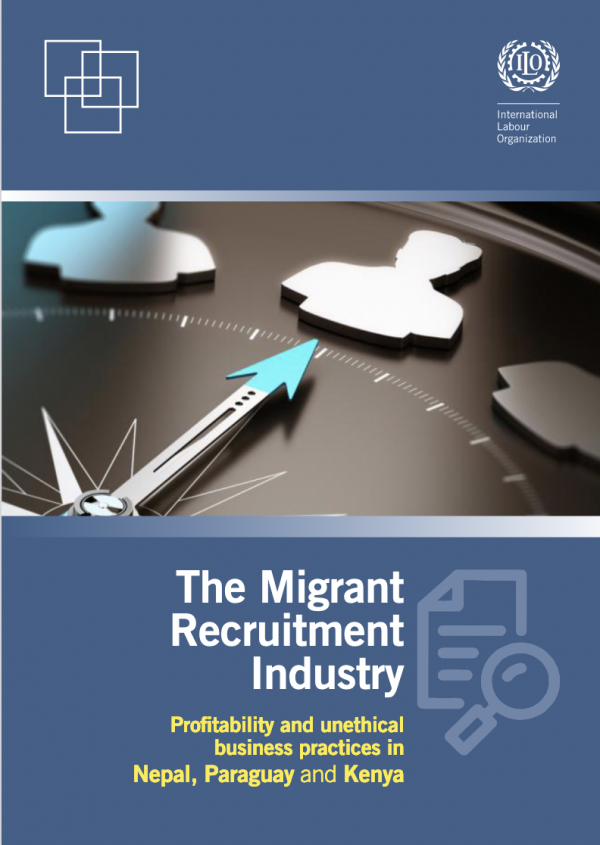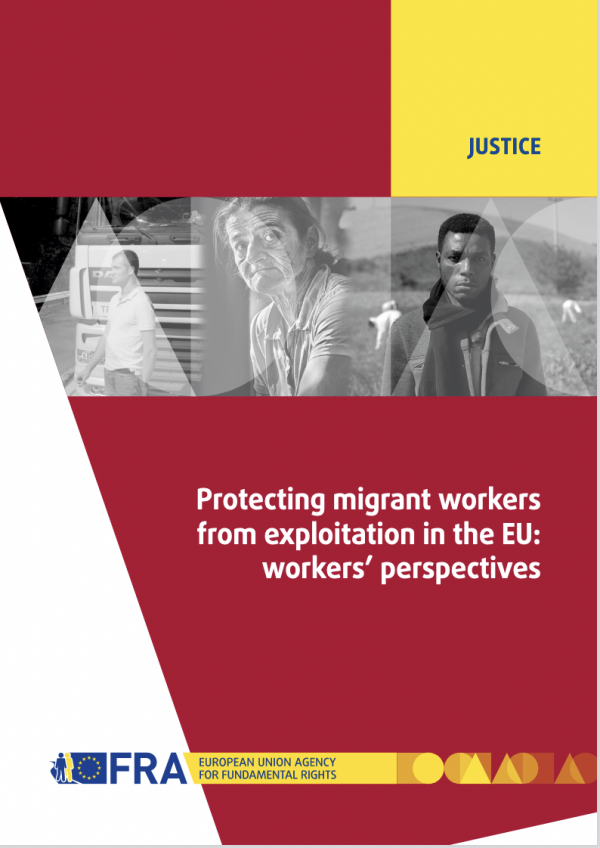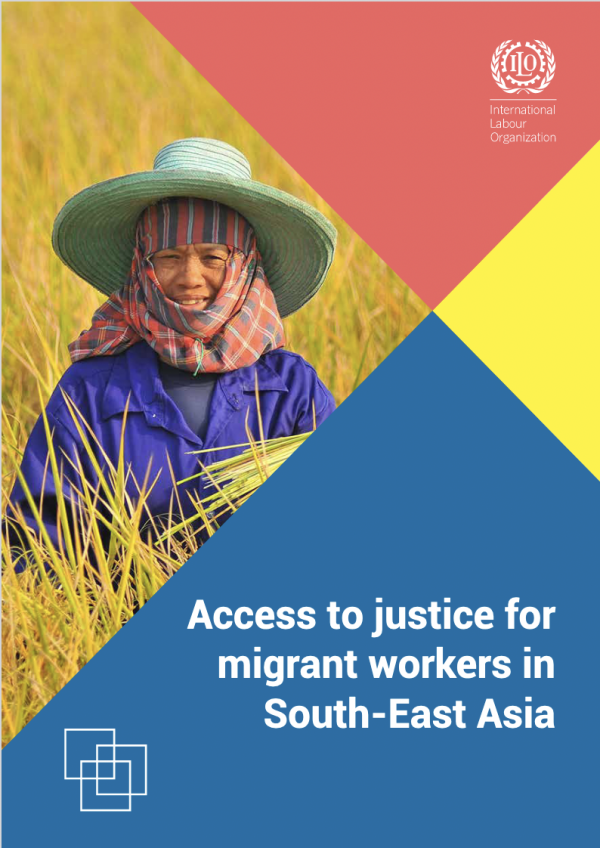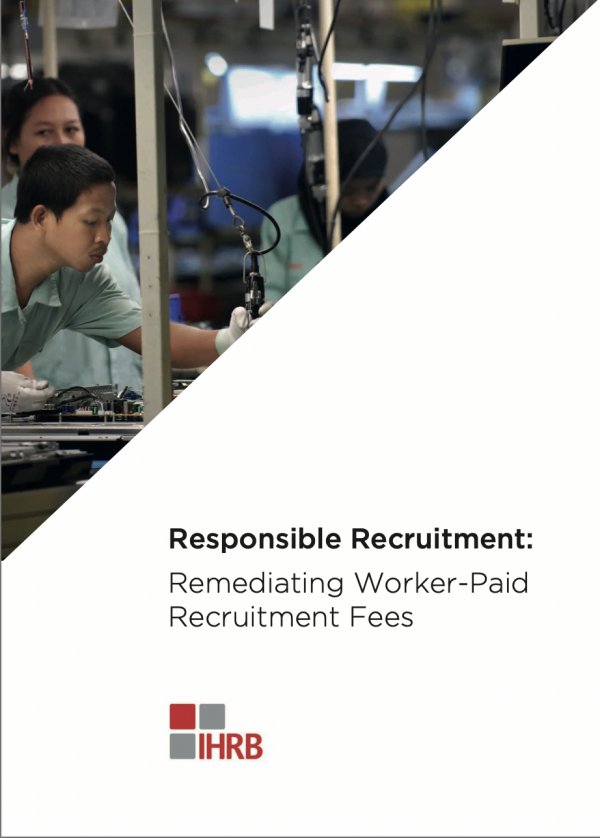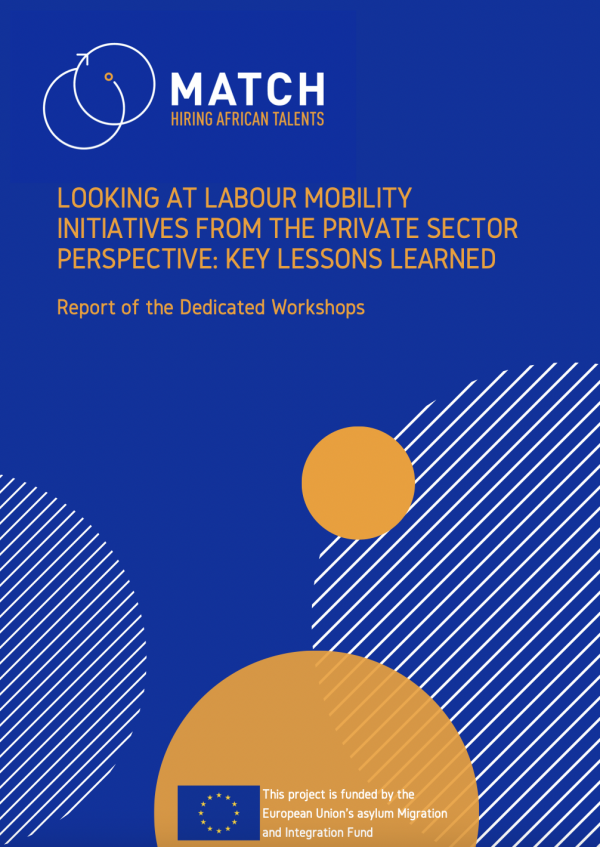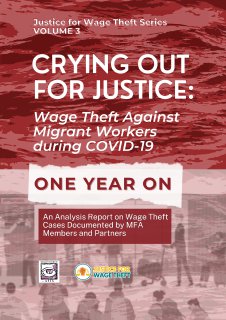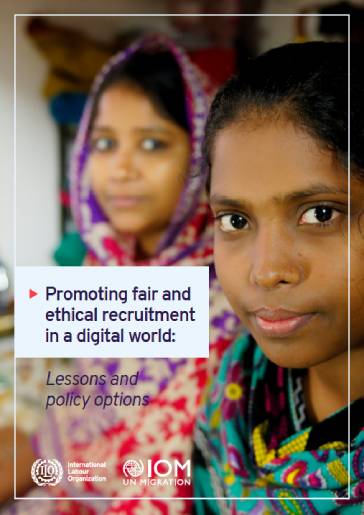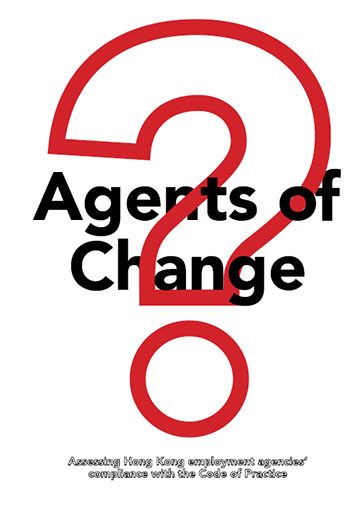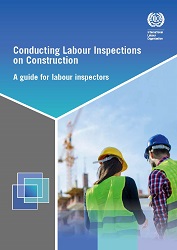The Migrant Recruitment Industry, Profitability and unethical business practices in Nepal, Paraguay and Kenya
This publication documents the process of foreign recruitment in case-study migration corridors across different regions. The result of the research brings to the fore the abuse of migrant workers by recruiters and seeks to contribute to broadening the choices workers have to find decent work at home and abroad.
Type of document :
Country/Region : , ,
Year of publication :
Theme :
Protecting migrant workers from exploitation in the EU: workers’ perspectives’, European Union Agency for Fundamental Rights
This report is the EU Fundamental Rights Agency’s fourth on the topic of severe labour exploitation. Based on interviews with 237 exploited workers, it paints a bleak picture of severe exploitation and abuse. The workers include both people who came to the EU, and EU nationals who moved to another EU country. They were active in diverse sectors, and their legal status also varied.
Type of document :
Country/Region :
Year of publication :
Theme :
Access to Justice for migrant workers in Southeast Asia
This report analyses access to justice for migrant workers in South-East Asia and provides recommendations for improving complaint mechanisms for labour rights abuses.
Type of document :
Country/Region :
Year of publication :
Theme :
Responsible Recruitment: Remediating Worker-Paid Recruitment Fees
This report focuses on the sixth step concerning remediation. Some companies have sought to reimburse worker-paid recruitment fees. This is an important step and consistent with the UNGPs which calls on companies to provide for or cooperate in remediation when they have caused or contributed to adverse human rights impacts. However, businesses face serious challenges in repaying affected migrant workers. This report identifies the challenges related to reimbursing recruitment fees and provides recommendations to businesses on how to apply remediation policies across their activities.
Type of document :
Country/Region :
Year of publication :
Theme : ,
Looking at Labour Mobility Initiatives From the Private Sector Perspective: Key Lessons Learned.
The present report presents a summary of the views expressed by companies from the private sector established in the four EU Member States participating to the MATCH project which seeks to address workforce challenges by enabling young professionals from Nigeria and Senegal to work for companies in Belgium, Italy, Luxembourg or the Netherlands. The perspectives of the private sector were gathered through on-line awareness raising sessions and dedicated workshops aiming at highlighting the benefits of legal pathways for migration and skills partnerships with Africa. Careful listening and dialogue with companies allowed the project partners to better understand the concerns and motivations of companies in joining a project such as the MATCH project. Together with surveys and data collection, exchanges with companies are also deemed to be essential to follow closely the evolution of the labour market and stay agile to unexpected developments.
Type of document :
Country/Region : , , , , ,
Year of publication :
Theme :
REPORT | Crying Out for Justice: Wage Theft Against Migrant Workers during COVID-19 Volume 3
Migrant Forum in Asia releases the 3rd volume of its analysis report series, “Crying Out for Justice: Wage Theft Against Migrant Workers during COVID-19” This report is an analysis of the cases documented by MFA members and partners as part of the Justice for Wage Theft Campaign.
As states go into crisis recovery, how have migrant workers been cast aside in the global response to the COVID-19 impact? How must stakeholders and duty bearers take action in ensuring that migrant workers achieve justice without delay? Volume 3 analyzes the wage theft cases experienced by migrant workers in the time of the pandemic since we started documenting cases, from July 2020 until December 2021.
08:25 AM
The report is now publicly available. You may download the report via this link: https://justiceforwagetheft.org/entity/9bckmq655ap?file=16454497686693kyxqxz1x2p.pdf
Please feel free to reach out to us for any comments, feedback, or interest to collaborate on the Justice for Wage Theft campaign. You may email mfa@mfasia.org.
Thank you for your continued support in our advocacy.
Type of document :
Country/Region : ,
Year of publication :
Theme : ,
Promoting fair and ethical recruitment in a digital world
This joint report by the ILO and the International Organization for Migration (IOM) explores innovative state-facilitated digital technology platforms from four different contexts, with a focus on the Employment Permit System of the Republic of Korea, Musaned from the Kingdom of Saudi Arabia, eMigrate from the Republic of India and the European Network of Employment Services.
The study maps four examples of state-facilitated digital technology platforms that assist the recruitment, placement, and/or job matching for migrant workers. In reviewing some of the promising practices and lessons learnt, the study aims to offer preliminary guidance to States developing similar online applications and platforms, while also discussing possible approaches on how to best leverage new techniques and technologies, including blockchain technology. When designed and implemented in an inclusive way, these digital technology platforms have the potential to promote institutional transparency and fairness, and can reduce the costs of labour migration and limit the potential for collusion between private recruitment agencies.
Type of document :
Country/Region : , , , ,
Year of publication :
Theme : , ,
Use of digital technology in the recruitment of migrant workers
This research report shows that digital technology can play a significant role in making safe labour migration and fair recruitment a reality. It also gives valuable recommendations for how to make this happen.
Digital technology could be a game changer in migrant worker protection. The number of internet users around the globe continues to climb and the development of information and communications technologies (ICT) has been unprecedented since the onset of COVID-19. This has resulted in new digital products, including those aimed at migrant workers, such as apps, websites and web portals, internet radio, and electronic tickets.
How can digital ICT facilitate safe labour migration and fair recruitment? To answer this question, the ILO partnered with the United Nations University Institute in Macau to better understand why and how migrant workers use digital technology. A mixed-method study was carried out during the second half of 2020. It included a desk review, a survey, focus groups, key informant interviews, and a landscape analysis of relevant existing digital products.
Based on the research, the ILO is currently developing a short summary tool featuring tips and advice on how to design, develop and promote digital products for migrant workers. The ILO is also organizing a workshop for relevant stakeholders to share lessons from the research and discuss their implications. Participants in the workshop will jointly develop a roadmap setting out the next steps in unleashing the potential of digital technology for migrant workers.
The research is part of the Integrated Programme on Fair Recruitment (FAIR, phase II), which falls within the framework of the ILO’s Fair Recruitment Initiative (FRI) .
Type of document :
Country/Region :
Year of publication :
Theme : , , ,
Agents of Change? Assessing Hong Kong employment agencies´ compliance with the Code of Practice
This report, based on a survey of over 450 migrant domestic workers, examines the implementation of the Hong Kong government’s Code of Practice for Employment Agencies (CoP), and its impact on the human and labour rights of domestic workers in the territory.
Type of document :
Country/Region :
Year of publication :
Theme : , , , ,
Conducting Labour Inspections on Construction - A guide for labour inspectors
The objective of this guide is to assist labour inspectors fulfil their inspectorial function by providing information, in a user friendly format on, a suggested methodology for conducting inspections of construction activities; from planning to reporting on the inspection, as well as providing technical information which labour inspectors can supply to employers and workers, so as to ensure “Decent Work”.
The construction sector plays an essential role in the socio-economic development of many countries, not least through the number of workers engaged in construction activities. However the employment relationship, the legal link between employers and workers, in construction activities is often unclear and this regularly results with workers not having access to certain rights and benefits, combined with this, workers are often exposed to many hazards. These factors mean that working conditions on many construction sites cannot be considered as “Decent work”, workers do not have a fair, just, safe and healthy working environment.
Inspections conducted by labour inspectors have an important role in ensuring compliance with legislation and thus decent working conditions for workers in all sectors, including construction. The guide details many of the working conditions that labour inspectors will address, namely, the employment relationship, representation rights, salaries and wages, working hours and holidays, employment of young person’s and foreign nationals as well as the hazards that workers can be exposed to. Internationally recognised safety measures are documented that, if followed, will reduce the likelihood of workers suffering from accidents and diseases.
Type of document :
Country/Region :
Year of publication :
Theme : ,
Subscribe to the Fair Recruitment Initiative Newsletter
Sign up to receive news delivered to your inbox.

